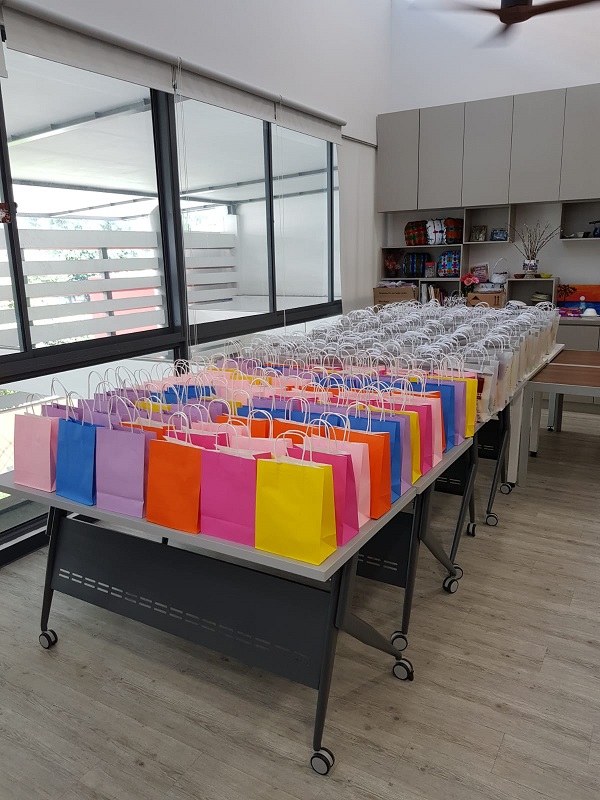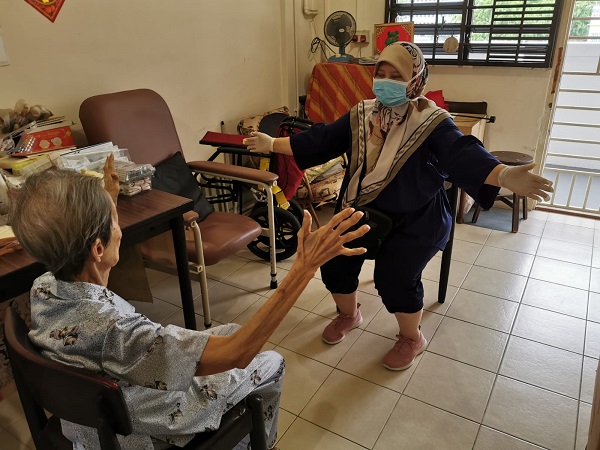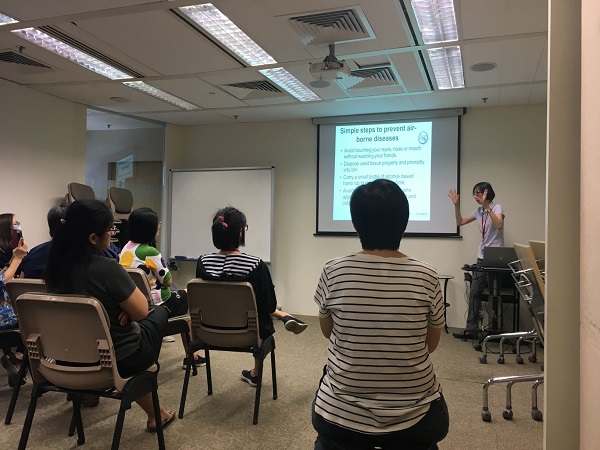By Peh Kim Choo, CEO, Tsao Foundation
The COVID-19 pandemic caused wide and profound disruptions in all our lives, and presented daunting challenges at Tsao Foundation, particularly because we mainly serve the population deemed the most vulnerable in this crisis: older persons.
We quickly realised that social distancing, while a critical health strategy, also exerted a high toll, with our elders experiencing various degrees of social isolation, physical inactivity and reduced mental stimulation, and families having to cope with unexpected and additional caregiving duties.
 Care packages for caregivers
Care packages for caregivers
Almost overnight, we adjusted our service delivery so as to ensure that clients with the highest risks would receive regular monitoring and timely interventions. Our care teams created a checklist to identify high-risk clients and families. We reached out and helped them to troubleshoot, plug gaps and soothe anxieties. The teams also put together easy and safe exercise regimes for our elders and caregivers, and guided them in these through home visits and/or digital platforms.
 Zamima from Elder-Centred Programme of Integrated Comprehensive Care (EPICC) visiting a beneficiary and conducting simple exercises
Zamima from Elder-Centred Programme of Integrated Comprehensive Care (EPICC) visiting a beneficiary and conducting simple exercises
For a better understanding of the impact of COVID-19 on the well-being of older adults, we conducted a phone survey of 158 participants in our community development programmes. Held between March and August of the year, its results suggested that elders in this profile were generally coping well. When programmes resumed under Phase 2, elders returning to ComSA Kawan attended weekly IT classes instead of the previous culinary sessions. Our Learning Room saw more elders attending online courses, another signal that they, too, were embracing new opportunities.
The COVID-19 pandemic has underlined the importance of collaboration between healthcare partners to secure optimal results for our citizens’ health. We do need to leverage our respective strengths to support one other: thus, while partners like TTSH focus on their expertise in saving the lives of those who have caught the infection, agencies like Tsao are there to support the community, especially the most vulnerable who are better served at their homes.
 Virus and hand-washing training by Sr Fong
Virus and hand-washing training by Sr Fong
As we face a future, perhaps with more uncertainties, the lessons we have learnt together – being nimble and adaptive as an organisation; building strong partnerships; and never losing sight of the elder at the centre of our care, or their potential – will continue to be our greatest strengths.
Find related items:
Issue 6: November 2020